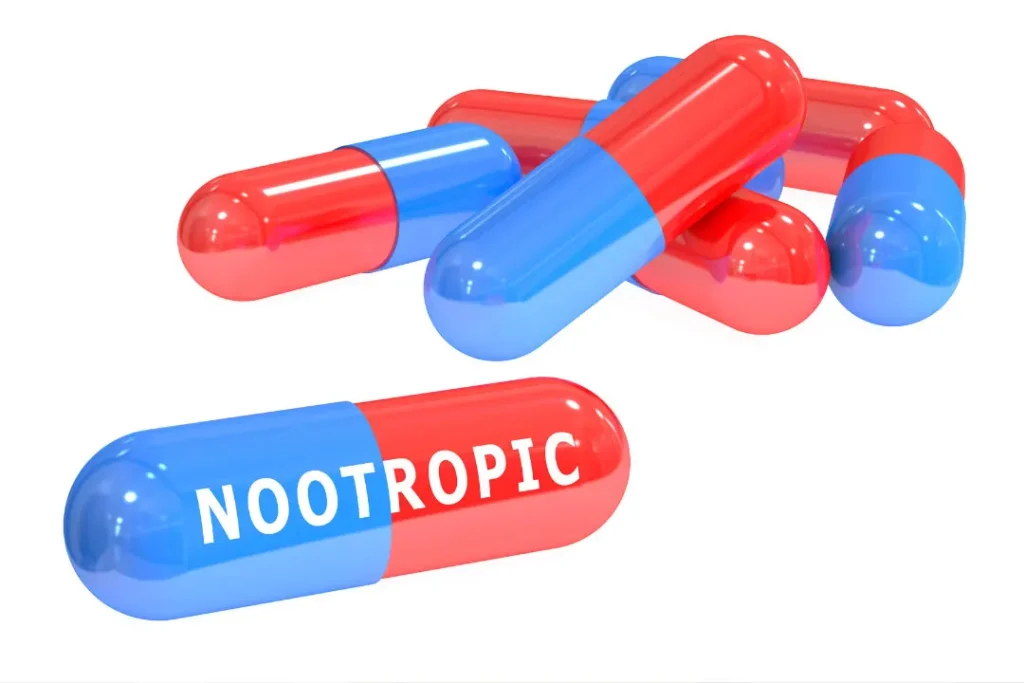Natural food sources that work to obtain a certain type of phospholipids known as alpha-glyceryl phosphocholine (alpha-GPC) include things like eggs, soy, and organ meats. Alpha-GPC is also accessible as a nootropic dietary supplement that can improve cognitive functions like learning, memory, and cognition. This article’s goal is to give readers a general understanding of alpha-GPC, from what it is and how it works to the possible side effects, drug interactions, and safe dosing guidelines.
You May Also Like:
5 Great Nootropic Herbs for Focus and Mental Clarity
5 Great Things to Include in Your Cognitive Enhancement Program
Nature of Alpha-Glyceryl Phosphocholine
A crucial element of cell membranes is the phospholipid alpha-GPC, a form of fat molecule that contains choline. A phosphate group, a choline molecule, and a glycerol molecule make up its structure. Choline, an important ingredient that is crucial for many physiological processes, including brain function, liver function, and muscular activity, is created in the body from alpha-GPC.

Health Benefits of Alpha-Glyceryl Phosphocholine
Many studies have been conducted on the possible health advantages of alpha-GPC, especially for cognitive function. The following are some of the main health advantages of alpha-GPC:
1. Enhances Memory and Learning: Both animal and human research have demonstrated that alpha-GPC enhances memory and learning. According to one study, those who took alpha-GPC for 90 days showed considerable memory and attention gains in comparison to those who got a placebo.
2. Promotes Neurological Health: Alpha-GPC might promote the health of neurons and have neuroprotective properties. According to research, it may lessen inflammation, defend against oxidative stress, and aid in brain cell development and repair.
3. Improves Concentration and Attention: According to one study, those who took alpha-GPC had significantly better attention spans than those who received a placebo. Alpha-GPC increases the production of acetylcholine and helps to improve focus and attention.
4. Enhances Athletic Performance: By raising levels of growth hormone and enhancing muscle function, alpha-GPC may improve athletic performance. Athletes who took alpha-GPC had enhanced lower body force generation and decreased signs of muscle injury after challenging exercise, according to one study.
5. Promotes Liver Health: Alpha-GPC may have liver-protective effects, especially in people who already have liver disease. In one study, those with non-alcoholic fatty liver disease saw less inflammation and oxidative stress due to alpha-GPC.
6. Decreases Cognitive Decline: Alpha-GPC may lower the risk of dementia and cognitive decline in aging persons. One study indicated that participants who took alpha-GPC for six months experienced significant increases in cognitive performance.
7. Enhances Sleep Quality: By raising acetylcholine levels, which are necessary for controlling the sleep-wake cycle, alpha-GPC may enhance sleep quality. According to one research, those who took alpha-GPC had better sleep overall and slept for longer periods of time than those who got a placebo.
In conclusion, there are a number of possible health advantages of alpha-GPC, especially for mental function, physical performance, and liver health. Alpha-GPC is a promising supplement if you are trying to improve your general health and wellness, even if more research is required to completely understand its effects.

Chemistry of Alpha-Glyceryl Phosphocholine
Alpha-GPC is a choline-containing phospholipid that has a molecular weight of 257.22 g/mol and is water soluble. Alpha-GPC can be produced from various dietary sources and is naturally present in the brain and other tissues in trace amounts.
Alpha-GPC shares a similar structure to other phospholipids found in cell membranes, thus, is involved in the development and maintenance of membranes.
When compared to other forms of choline, alpha-GPC has a high bioavailability and is well absorbed by the body. This indicates that it is effectively utilized by the body and is readily absorbed.
Physiological Mechanism of Alpha-Glyceryl Phosphocholine
The pharmacological mechanism of action of alpha-GPC involves raising choline and acetylcholine levels in the brain. Alpha-GPC can improve cognitive performance and encourage neuroplasticity—the brain’s capacity to alter and adapt in response to new experiences by raising acetylcholine levels in the brain.
By increasing the production of growth hormone, which can aid to build muscle and promote recovery after exercise, alpha-GPC may also increase athletic performance. Alpha-GPC may also have anti-inflammatory and antioxidant qualities that can help shield the brain from harm brought on by oxidative stress and inflammation.

Optimal Dosage of Alpha-Glyceryl Phosphocholine
The right amount of alpha-GPC depends on the user and the goal of the medication. Alpha-GPC should generally be taken between 300 and 600 mg per day. However, greater doses of up to 1200mg per day have been utilized in some trials.
It is crucial to remember that alpha-GPC is a strong supplement and needs to be used carefully. It is advised to start with a lesser dose and then gradually raise it as necessary. Before using alpha-GPC, make sure to read the supplement’s label carefully and seek medical advice, especially if you have a medical condition or are on any medication.
Side Effects of Alpha-Glyceryl Phosphocholine
When used as directed, alpha-GPC is often well tolerated and safe. Some minor effects such as sleeplessness, nausea, dizziness, and headaches would develop in some people. By reducing the dosage, these side effects, which are often minor and transient, can be mitigated.
However, alpha-GPC will interact with acetylcholinesterase inhibitors and anticholinergic medicines that are used to treat Alzheimer’s disease and Parkinson’s disease. Therefore, if you are taking any medicine, it is crucial to speak with a healthcare provider before using alpha-GPC.

Potential Substance Interactions with Alpha-Glyceryl Phosphocholine
When combined with other drugs, such as coffee, alpha-GPC may have an enhanced cognitive-enhancing impact. When combining alpha-GPC with other substances, care must be taken because it may intensify their effects and produce undesirable side effects.
It’s also crucial to keep in mind that certain people can have a genetic mutation that impacts how they absorb choline. To get the same cognitive benefits as those who don’t have the genetic mutation, these people might need to consume higher dosages of choline.
Best Responsible Use of Alpha-Glyceryl Phosphocholine
It’s crucial to use alpha-GPC sensibly and in accordance with the advised dosages.
MyPEAK Wellness, a supplement provided by myPEAK Supplements, is among the top providers of alpha-GPC. To improve cognitive performance and provide users with a continuous energy boost, this nootropic pill combines the brain-boosting effects of L-theanine and caffeine with the synergistic effects of alpha-GPC. It’s crucial to use alpha-GPC properly as part of a healthy diet and lifestyle and to be aware of any possible adverse effects and drug interactions.

Alpha-Glyceryl Phosphocholine: Conclusion
Alpha-Glyceryl Phosphocholine (alpha-GPC) has been well-known for its nootropic abilities and capability to increase athletic power. Alpha-GPC belongs to a crucial element in the cell membrane and it can positively influence brain cells by triggering the production of acetylcholine. It has been found in studies that alpha-GPC is involved in the development of membranes and also carries both antioxidant and anti-inflammatory properties. Thus, if you are an athlete or you would like to improve your intellect or athletic ability, supplements like MyPEAK Wellness from MyPEAK supplements is a good option for you because they are a respectable and trustworthy source of alpha-GPC. However, do keep in mind that you still need advice from healthcare professionals to understand the appropriate use of this supplement.
Important Note: The information contained in this article is for general informational purposes only, and should not be construed as health or medical advice, nor is it intended to diagnose, prevent, treat, or cure any disease or health condition. Before embarking on any diet, fitness regimen, or program of nutritional supplementation, it is advisable to consult your healthcare professional in order to determine its safety and probable efficacy in terms of your individual state of health.
Regarding Nutritional Supplements Or Other Non-Prescription Health Products: If any nutritional supplements or other non-prescription health products are mentioned in the foregoing article, any claims or statements made about them have not been evaluated by the U.S. Food and Drug Administration, and such nutritional supplements or other health products are not intended to diagnose, treat, cure, or prevent any disease.


